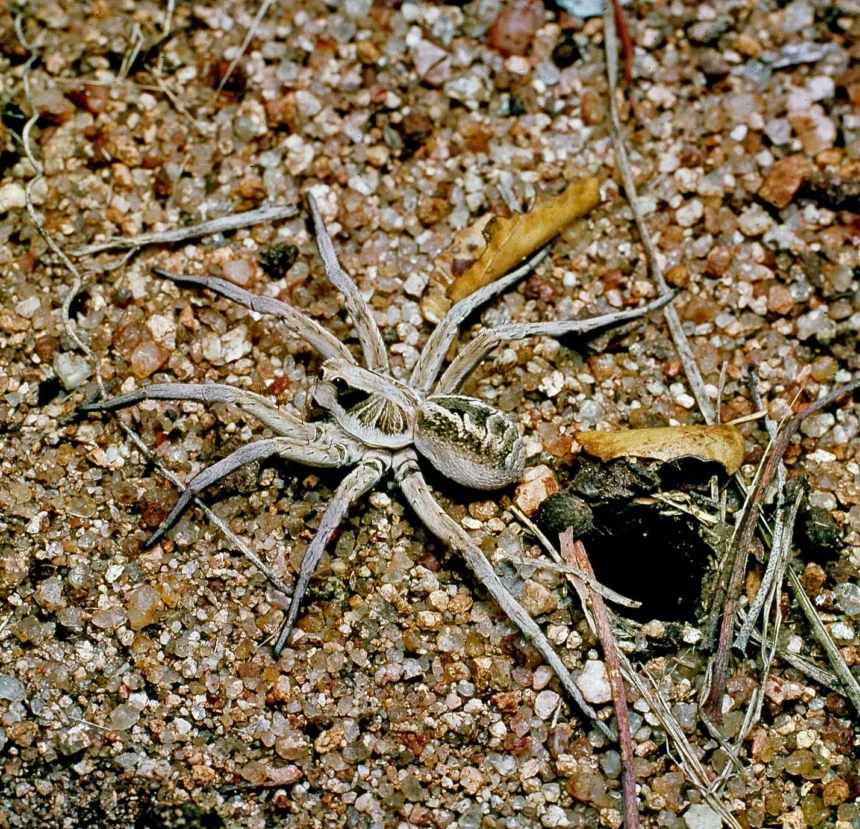Rare White-Knuckled Wolf Spider Found Alive After 40 Years
The white-knuckled wolf spider rediscovery on the Isle of Wight has amazed conservationists. This small and elusive Aulonia albimana was once thought extinct in the UK. Researchers found it thriving in a quiet corner of a protected nature reserve that can only be reached by boat.

This exciting find marks the species’ first confirmed sighting in Britain since 1985.
Discovery on a Remote Isle of Wight Nature Reserve
Entomologists Mark Telfer and Graeme Lyons made the discovery during a wildlife survey at the Newtown National Nature Reserve. The National Trust manages the area with a small flock of Hebridean sheep that keep the grass short and sunlit—perfect for the spider’s habitat.

Telfer called it “an unforgettable discovery.” Lyons added that he found the first spider with just nine minutes left before the boat arrived, and another moments later. “I’ve recorded more than 550 spider species in the British Isles,” he said. “This was my most thrilling find.”https://www.youtube.com/watch?v=MU-XDwIrYYA
A Rare and Mysterious Species
Adult white-knuckled wolf spiders measure only 3.8–4.4mm in length. Their pale “knuckles” give them their distinctive name. Unlike most wolf spiders that hunt on the ground, this species also spins thin webs. Because of this, scientists still don’t fully understand its hunting methods.
This rediscovery adds to our knowledge of Isle of Wight biodiversity and shows how fragile habitats can still recover.
Habitat Restoration Plays a Vital Role
For years, the site had become overgrown and unsuitable for the spider. The National Trust’s restoration work and grazing management brought back open, sunny spaces that the species needs to survive.

Paul Davies, countryside manager for the National Trust, said:
“We’ve managed this rare limestone grassland for years to boost biodiversity. Seeing such a rare species return is incredibly rewarding.”
Conservationists Celebrate the Rediscovery
Helen Smith, conservation officer at the British Arachnological Society, described the find as one of Britain’s most remarkable rediscoveries. For decades, experts failed to locate the species and feared it had vanished.

Now, conservationists plan to study the population and identify how to support its growth and protect its habitat for the future.
Conclusion: Hope for the White-Knuckled Wolf Spider
The white-knuckled wolf spider rediscovery on the Isle of Wight proves how conservation and habitat care can revive lost species. It’s a powerful reminder of nature’s resilience and why protecting wild spaces remains essential for the UK’s biodiversity.




